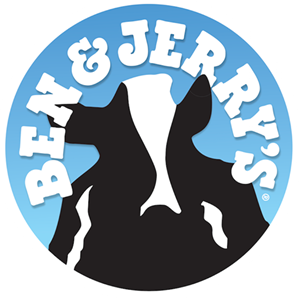Palestine And Pints: Ben & Jerry’s Sues Unilever For Undermining Social Mission

Outspoken ice cream brand Ben & Jerry’s is using its reputation for social activism to take a stand against an unlikely target: its parent company, Unilever.
The Vermont-based ice cream maker filed an injunction in U.S. District Court in Manhattan yesterday, aiming to block Unilever’s sale of its Israeli business to its licensee Avi Zinger, the owner of Israel-based American Quality Products Ltd (AQP).
Ben & Jerry’s claims in the suit that the sale violates a clause in its contract with Unilever that allows its Independent Board of Directors to block corporate decisions it deems “inconsistent with the Essential Integrity of the Brand.”
The deal of would keep Ben & Jerry’s products on shelves in East Jerusalem and the West Bank despite the ice cream maker’s protests of Israeli government policies toward the Occupied Palestinian Territory (OPT). Last June, the frozen confection brand announced it was working to halt sales in the territory, stating that it was inconsistent with the company’s values for its product “to be present within an internationally recognised illegal occupation.”
At the time of the announcement, Ben & Jerry’s said it informed AQP that it would not renew its agreement when it expires at the end of 2022 since the company would not agree to stop selling products in the OPT. Ben & Jerry’s said it was working on a new arrangement to ensure its products remain available in Israel.
However, in March, Zinger filed a breach of contract suit against Unilever in a U.S. federal court claiming the termination of the agreement violates both U.S and Israeli law. Zinger said in a press release that he has held the license for 34 years, selling to both “Israelis and Palestinians.”
“I refused Ben & Jerry’s and Unilever illegal demands, and as a result, they are threatening to close my business, affecting hundreds of Israeli and Palestinian workers and distributors,” said in his suit.
The terms of the impending sale, announced on June 28, were included in a settlement reached between Unilever and AQP. Since the decision was announced last year, states including New York, New Jersey, Arizona, Florida, Illinois and Texas have divested nearly $1 billion from Unilever, claiming that Ben & Jerry’s action violated their state’s anti-boycott laws.
“While our parent company has taken this decision, we do not agree with it,” Ben & Jerry’s said via Twitter last week. “Unilever’s arrangement means Ben & Jerry’s in Israel will be owned and operated by AQP. Our company will no longer profit from Ben & Jerry’s in Israel. We continue to believe it is inconsistent with Ben & Jerry’s values for our ice cream to be sold in the Occupied Palestinian Territory.”
Ben & Jerry’s political activism has been a hallmark of the brand since its founding by Ben Cohen and Jerry Greenfield in 1978, and was a critical part of its 2000 sale agreement with Unilever. The two entities agreed Ben & Jerry’s board would maintain independence to continue supporting causes like racial justice, climate action, LGBTQ rights and campaign finance reform. Unilever was given the final word on financial and operational decisions, per terms of the deal.
Ben & Jerry’s claims in the suit that the sale “was made without the consent of Ben & Jerry’s Independent Board of Directors, the entity contractually empowered with protecting Ben & Jerry’s brand.”
But its parent company has defended its actions stating that, “Unilever has used the opportunity of the past year to listen to perspectives on this complex and sensitive matter and believes this is the best outcome for Ben & Jerry’s in Israel. The review included extensive consultation over several months, including with the Israeli Government.”
If the sale goes through, AQP would sell Ben & Jerry’s ice cream under its Hebrew and Arabic name throughout Israel and the West Bank. Unilever said it was “very proud” of its business in Israel and highlighted its four manufacturing plants, 2,000 employees and the 2,000 local suppliers and service providers within its value chain that operate out of the country.

















